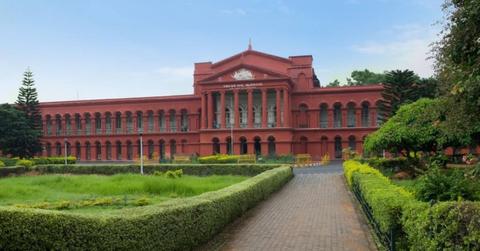Twitter Sues Indian Government — What the Lawsuit Is All About
Twitter has sued the Indian government over social media restrictions. Here’s what the lawsuit says and whether Twitter will prevail.
July 6 2022, Published 2:34 p.m. ET
After the Indian government ordered Twitter Inc. (TWTR) to remove specified accounts and posts as part of a broadening censorship effort, Twitter is retorting. Twitter has filed a lawsuit in the Karnataka High Court in Bangalore, India over the court’s previous decision in an attempt to redraw earlier legislation extending the nation’s ability to censor the web.
Indian officials are targeting government-critical social media content and Twitter has had enough. As the company readies for a buyout from billionaire Elon Musk, freedom of speech — even on a global scale — is a top priority. Also, Twitter wants to become the premier destination for India, and censorship could be an obstacle.
Here's what Twitter’s lawsuit against the Indian government says
Days after India ordered Twitter to take down posts and accounts critical of its government — an order that Twitter complied with — the social media company sued India over alleged overreaching regulations. Twitter, helmed by Indian-American CEO Parag Agrawal, isn't a stranger to India’s tech and privacy regulations.
In 2021, India passed a set of laws that enhanced its ability to censor content. The legislative push began at an unexpected starting line, a tweet from Rihanna criticizing Indian Prime Minister Narendra Modi. According to Al Jazeera, the laws “make it easier for the government to order social media platforms with more than five million users to take down content that is deemed unlawful.”
Failing to comply with India’s court order could have led to criminal prosecutions for company executives and ended Twitter’s operations in India altogether. Twitter wasn’t willing to take that risk, but it's willing to fight the government through a lawsuit that deems the laws shouldn't be interpreted so broadly.
Why India is restricting social media posts
India does boast its people’s freedom of speech in its constitution, but that same constitution protects the nation’s security and order. In his role as Prime Minister, Modi has extended the nation’s right to censor social media posts if they threaten this security.
Will Twitter prevail amid censorship in India?
According to India’s Minister of Electronics and Information Technology Ashwini Vaishnaw, “It is everyone’s responsibility to abide by the laws passed by the country’s Parliament.” That perspective suggests the Indian government won’t be inclined to budge. With a laser focus on government dissent, India is sacrificing the growth of big tech in its nation of 1.4 billion people.
Twitter isn't the first tech company to target Indian censorship laws. Last year, WhatsApp (owned by Meta Platforms) took legal action against the Indian government. The country said WhatsApp’s privacy “is subject to reasonable restrictions” and the outcome of the case remains pending.
A Twitter spokesperson, in response to India’s extension of power in the social media space, said last year, “We, alongside many in civil society in India and around the world, have concerns with regards to the use of intimidation tactics by the police in response to enforcement of our global Terms of Service, as well as with core elements of the new IT Rules.”
Ultimately, as Twitter struggles to gain the top spot for its massive Indian audience — and as India seeks to maintain its censorship power—one party is left without a say. Tech lawyer and founder of Software Freedom Law Center in India Mishi Choudhary told NPR last year, “Both the government and [social media] companies are claiming they're protecting users, when it's convenient for them, but users are really the ones left without much power.”


